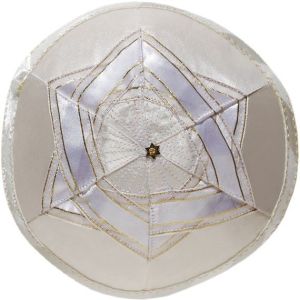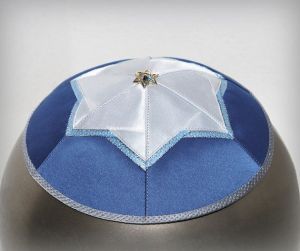Like maximum nuptials, the dress code for a Jewish wedding can be influenced by site and time of day. At many Jewish weddings, men wear kippot (skullcaps), and they will most likely be provided at the wedding. In some circles, you may see women wearing kippot too. Women at more traditional Jewish weddings wear skirts or dresses that fall below the knee and cover their shoulders — or elbows, in even more traditional circles. Sometimes women wear wraps or jackets that cover their shoulders just for the ceremony, and then they uncover for the party. However, the most important part of the wedding is the groom’s wedding Kippahs.

Often this kind of Kippah is considered as the most pious thing ever. The groom feels more blessed ashe wears his designer wedding kippah. Many choose satin while many prefer knit Kippahs. Whatever may be the material the skull cap represents God’s blessings on the groom as he masterfully wears the kippah.Traditionally, Jewish men wear the kippah at every time, as a symbol of their awareness of, and submission to, a "higher" entity.

Although it is not explicitly required by law, the practice is noted in the Talmud, and through the ages, this became an accepted Jewish custom to the point that according to the majority of halachic authorities, it is mandatory. One should, therefore, not walk or even sit, bareheaded. Marriages as we all know are made in Heaven and it is the order of the Heaven to wear a good Kippah and to make the head pious enough for blessings.

Aside from the common black kippahs, many wear kippot (plural form of kippah) of various colours or designs. Some communities have developed kippah designs that are highly intricate works of art, such as those made by Jewish artisans from Yemen and Georgia, most of whom now live in Israel. Even at times Jewish brides love to show their faith by lovingly placing the Kippah on their own head. Like every other tradition the use of wedding kippah is a great gesture of loyalty and path following of Judaism.
Call us toll free 866.692.1975






0 comments:
Post a Comment